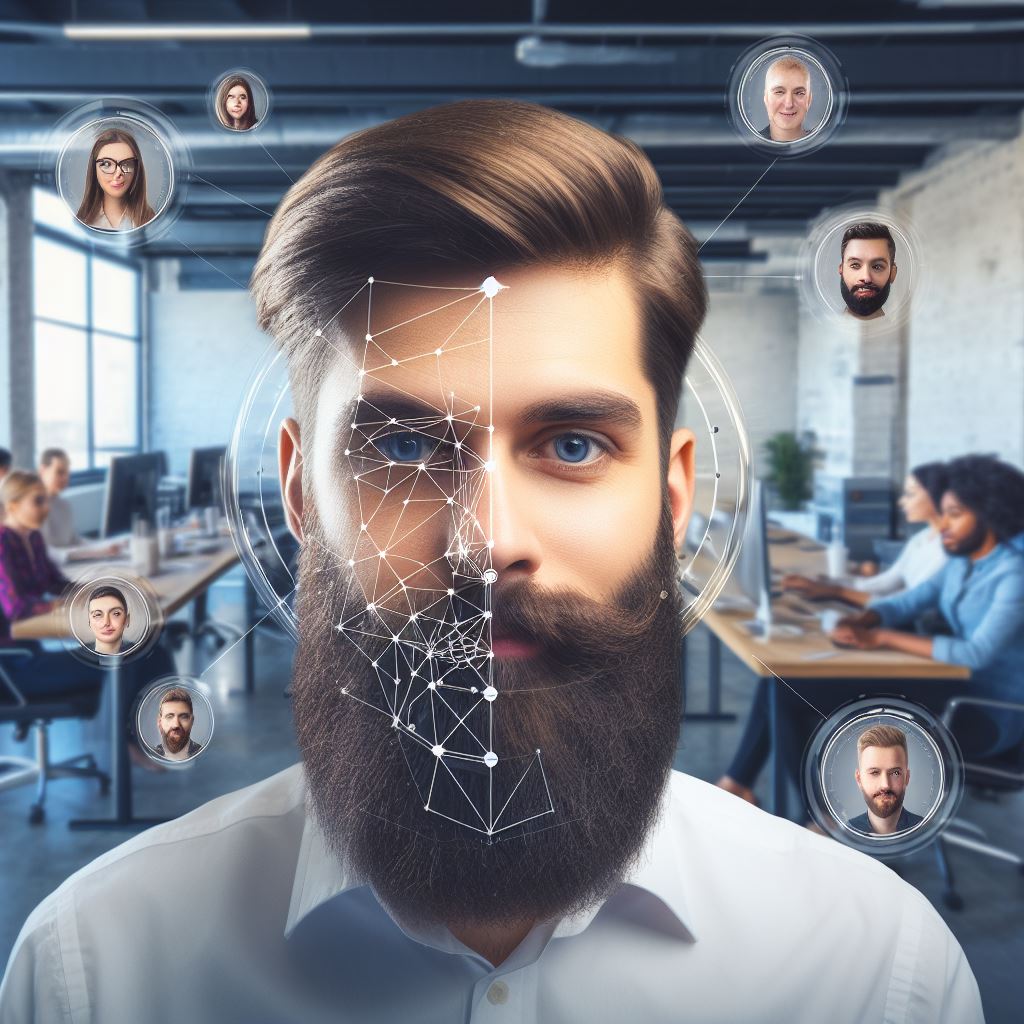Introduction
Let dive into coding as universal connector bridging divides.
In today’s diverse and polarized society, it is essential to bridge divides and foster unity within the United States.
One powerful tool that helps accomplish this is coding. Coding is the process of creating computer software, apps, and websites using various programming languages.
It serves as the universal connector, transcending differences and bringing people together.
Coding acts as a bridge by promoting collaboration and understanding among people from different backgrounds.
By learning to code, individuals can develop common interests and work together towards shared goals. This creates opportunities for interactions that transcend social, economic, and cultural boundaries.
Moreover, coding has become an increasingly essential skill in our technology-driven world.
It empowers individuals to develop innovative solutions to societal challenges, fostering economic growth and progress.
Through coding, people can tackle pressing issues such as climate change, healthcare, and education.
Furthermore, coding provides a platform for diverse voices to be heard. It enables individuals to create websites and apps that address their specific needs and concerns.
By empowering marginalized communities to become active participants in the digital landscape, coding helps bridge the digital divide and promote inclusivity.
Basically, coding plays a vital role in bridging divides within the United States.
By promoting collaboration, empowering individuals, and amplifying diverse voices, coding serves as the universal connector in our society. It offers a pathway towards unity, understanding, and progress.
The power of coding in fostering inclusivity
Coding as a language accessible to all
In today’s fast-paced and interconnected world, coding has emerged as the universal language that bridges divides and connects people from diverse backgrounds and cultures.
Unlike traditional languages, coding is not bound by geographical or cultural barriers, making it accessible to all.
Tech Consulting Tailored to Your Coding Journey
Get expert guidance in coding with a personalized consultation. Receive unique, actionable insights delivered in 1-3 business days.
Get StartedWhether you are a young student in a rural village or a seasoned professional in a bustling city, coding provides a level playing field where anyone can participate and contribute.
The ability to code empowers individuals by giving them the tools to express their ideas, solve problems, and create innovative solutions.
Furthermore, coding breaks down societal barriers by providing equal opportunities for marginalized communities.
Regardless of one’s gender, race, or socioeconomic background, coding offers a path to economic empowerment and social mobility.
It allows individuals to access new educational and employment opportunities that were previously unavailable.
Technology’s democratizing nature
Coding plays a pivotal role in democratizing technology, ensuring that it is accessible and adaptable to everyone.
In an increasingly digital world, the ability to code is synonymous with literacy. It enables individuals to understand and shape technology, rather than being mere consumers.
By understanding how to code, individuals can actively participate in shaping the technologies that shape our daily lives.
They can contribute to building inclusive digital platforms, developing ethical algorithms, and designing user-centric solutions.
This active engagement promotes inclusivity by allowing a diverse range of perspectives to influence technology development.
Moreover, coding fosters collaboration and cooperation. As individuals learn to code, they join vibrant online communities where knowledge sharing and collaboration are encouraged.
People from different backgrounds come together to solve problems, share ideas, and collectively contribute to the advancement of technology.
Enhancing diversity in the tech industry
The tech industry has long been criticized for its lack of diversity and inclusion.
However, coding has the potential to change this landscape by empowering individuals from underrepresented communities to enter and thrive in the industry.
Build Your Vision, Perfectly Tailored
Get a custom-built website or application that matches your vision and needs. Stand out from the crowd with a solution designed just for you—professional, scalable, and seamless.
Get StartedBy learning how to code, individuals can acquire the skills needed to pursue careers in technology.
This creates opportunities for women, minorities, and other marginalized groups to enter a field traditionally dominated by a homogenous group of individuals.
As more diverse voices and perspectives are included, the tech industry becomes more innovative, inclusive, and reflective of the world it serves.
Furthermore, coding education programs and initiatives aimed at fostering diversity in tech are gaining momentum.
Organizations are providing scholarships, mentorship programs, and coding bootcamps to ensure that individuals from all backgrounds have access to tech education and employment opportunities.
In conclusion, coding holds immense power as a universal connector, fostering inclusivity by being accessible to all, democratizing technology, and enhancing diversity in the tech industry.
Through coding, individuals can break barriers, bridge divides, and build a future that is inclusive and empowering for all.
Read: Mastering the Art of CSS Positioning Explained
Coding as a tool for economic empowerment
High demand for coding skills in the job market
- Coding skills are in high demand across various industries and job sectors.
- Companies are constantly seeking individuals who can code to develop software and websites.
- The job market offers numerous opportunities for individuals with coding expertise to secure well-paying positions.
- Coders have the advantage of being in a field with a strong and growing demand for their skills.
Equal opportunities for economic growth
- Coding provides an equal playing field for individuals from diverse backgrounds.
- It doesn’t discriminate based on gender, race, or socio-economic status.
- Anyone with access to coding education and resources can develop the necessary skills.
- Coding empowers individuals to create their own opportunities for economic growth.
Bridging the income gap through coding education
- By offering coding education to underprivileged communities, the income gap can be reduced.
- Coding skills enable individuals to secure higher-paying jobs and break the cycle of poverty.
- Programs that focus on teaching coding to marginalized groups contribute to narrowing the income disparity.
- Through coding education initiatives, individuals can gain the skills needed to access better job opportunities.
In a nutshell, coding serves as a powerful tool for economic empowerment.
With a high demand for coding skills in the job market, individuals who possess these skills have the opportunity to secure well-paying positions.
Coding also provides equal opportunities for economic growth, allowing individuals from diverse backgrounds to enter the field and create their own success.
Additionally, coding education has the potential to bridge the income gap, as it enables individuals in underprivileged communities to break the cycle of poverty and secure higher-paying jobs.
By embracing coding as a universal connector, the United States can empower its citizens and foster economic growth.
Read: CSS Frameworks vs. Custom Code: What’s Best?
Optimize Your Profile, Get Noticed
Make your resume and LinkedIn stand out to employers with a profile that highlights your technical skills and project experience. Elevate your career with a polished and professional presence.
Get Noticed
Coding as a means of civic engagement
Increasing access to information and services
- Coding has the power to bridge gaps by providing equal access to information and services.
- Through coding, governments can create platforms that deliver crucial information to all citizens.
- With coding, governments can design user-friendly websites and applications for easy access to public services.
- Coding allows for the development of online databases, making information more readily available to everyone.
Digital platforms for civic participation
- Coding enables the creation of digital platforms that foster civic engagement and collective decision-making.
- Through coding, governments can develop online forums and discussion boards for citizens to voice their opinions.
- By using coding, governments can design online surveys and polls to gather public feedback and input.
- Coding allows for the creation of online petitions and platforms for citizens to advocate for change.
Creating a more participatory democracy
- Coding empowers citizens to actively participate in the political process and shape democracy.
- Through coding, governments can provide online voting platforms to increase voter turnout and engagement.
- Coding allows for the development of digital tools that enable citizens to track and monitor legislative activities.
- With coding, governments can establish transparent systems that promote accountability and trust.
Overall, coding plays a crucial role in promoting civic engagement and bridging divides in society.
By increasing access to information and services, coding ensures equal opportunities for all citizens.
Digital platforms created through coding provide avenues for citizens to actively participate in decision-making processes.
Moreover, coding allows for the development of a more participatory democracy, where citizens have a voice and can shape policies.
As coding continues to advance, it is essential for governments to embrace technology and leverage it to bridge divides for a more inclusive society.
Coding as a channel for cultural exchange
Uniting diverse communities through coding
Coding has become a universal language that transcends cultural barriers and brings together people from diverse backgrounds.
Through coding workshops and events, individuals from different communities can collaborate and share their unique perspectives.
These interactions foster understanding, empathy, and respect among participants, breaking down biases and stereotypes.
Coding provides a common ground for individuals to come together, regardless of their cultural or ethnic differences.
By coding together, people learn to appreciate the value of diversity and recognize the richness it brings to innovation.
Encouraging collaboration and innovation
Coding serves as a platform for collaboration, allowing individuals to work together towards a common goal.
When diverse minds come together, they bring a wide range of experiences and expertise, sparking creativity and innovation.
Collaborative coding projects enable individuals to learn from one another, expanding their skill sets and refining their coding abilities.
By embracing different perspectives, diverse communities can develop innovative solutions to complex problems.
Coding also fosters the spirit of teamwork, as participants work together to overcome challenges and achieve common objectives.
Through coding projects, individuals develop communication skills and learn to collaborate effectively, laying the foundation for future success.
Exchanging ideas and knowledge globally
The world of coding offers endless opportunities for global exchange of ideas and knowledge.
Through online platforms and coding communities, individuals can connect with coders from around the world.
These connections lead to the exchange of ideas, best practices, and innovative coding techniques.
Coders can learn from one another, discovering new approaches and solutions to coding problems.
By sharing their expertise, individuals contribute to the growth and advancement of the global coding community.
The global exchange of ideas in coding sparks creativity and enables individuals to push the boundaries of what is possible.
Ultimately, coding as a channel for cultural exchange fosters mutual learning, collaboration, and innovation.
It breaks down barriers and brings people together, creating a more inclusive and interconnected world.
As more individuals embrace coding, the potential for cultural exchange and collaboration only continues to grow.
Together, we can harness the power of coding to bridge divides and build a united, innovative future.
Read: Optimizing CSS for Dark Mode: Tips and Tricks
Challenges and Solutions for Bridging Coding Divides
Lack of Access to Coding Education
One of the major challenges in bridging coding divides is the lack of access to coding education.
Many individuals, especially those from underserved communities, do not have the resources or opportunities to learn coding skills.
This creates a significant barrier, preventing them from participating in the tech industry or pursuing careers in coding.
To address this challenge, initiatives and programs have been implemented to provide coding education to those who lack access.
Non-profit organizations and government agencies are partnering to offer coding boot camps, scholarships, and online courses.
Furthermore, schools and universities are incorporating coding into their curriculum to ensure all students have the opportunity to learn.
Gender and Racial Disparities in the Tech Industry
Another challenge in bridging coding divides is the gender and racial disparities that exist in the tech industry.
Historically, women and individuals from minority communities have been underrepresented in coding and technology-related fields.
This lack of diversity not only perpetuates inequalities but also limits the range of perspectives and ideas in innovation.
To address these disparities, companies and organizations are implementing diversity and inclusion initiatives.
They are actively working towards creating a more inclusive and equitable tech industry.
This includes offering mentorship programs, conducting diversity training, and establishing recruitment practices that prioritize diversity.
Initiatives and Programs Promoting Inclusivity and Diversity in Coding
Several initiatives and programs have been developed to promote inclusivity and diversity in coding.
These initiatives aim to provide equal opportunities for everyone, regardless of their background.
They encourage diversity and ensure that individuals from underrepresented communities have a voice in the tech industry.
One such initiative is Girls Who Code, which aims to close the gender gap in coding by offering free coding education to girls.
Another program is Black Girls Code, which focuses on providing opportunities for African American girls to learn coding skills.
Additionally, tech companies are creating employee resource groups and affinity networks that support and empower underrepresented groups.
These networks provide a safe space for individuals to connect, share experiences, and advocate for diversity and inclusion within the company.
Essentially, bridging coding divides requires addressing challenges such as the lack of access to coding education and gender and racial disparities in the tech industry.
Through initiatives and programs that promote inclusivity and diversity, we can create a more equitable and inclusive tech sector.
It is essential to provide equal opportunities for all individuals, regardless of their background, so that coding can truly become the universal connector in the USA.
Read: Building a Simple Carousel with jQuery and CSS
Explore Further: Must-Know Web Security Practices for Coders
Conclusion
Recap of the importance and benefits of coding as USA’s universal connector
Coding acts as a universal connector in the USA, breaking barriers and bridging divides in society.
It enables people from diverse backgrounds and communities to collaborate, communicate, and create together.
Through coding, individuals can access opportunities in technology, education, and the workforce, empowering them to shape their own futures.
The tech industry benefits from the diverse perspectives and innovation that coding brings. Moreover, coding promotes critical thinking, problem-solving, and creativity, essential skills for the digital age.
Call to action: Embracing coding to bridge the divides in society
To harness the power of coding as a universal connector, it is crucial for individuals, communities, and institutions to embrace and prioritize coding education.
Schools should integrate coding into their curriculums to ensure equitable access to digital literacy.
Communities should offer coding programs and resources for people of all ages, fostering inclusivity and diversity in the tech field.
Governments and organizations should invest in initiatives that promote coding education, providing opportunities for underrepresented groups.
By embracing coding, we can bridge the divides in society, create a more inclusive future, and unlock the potential of every individual to contribute to a thriving and connected USA.
Let us join hands, break down barriers, and embrace the universal language of coding to build a brighter future together.




